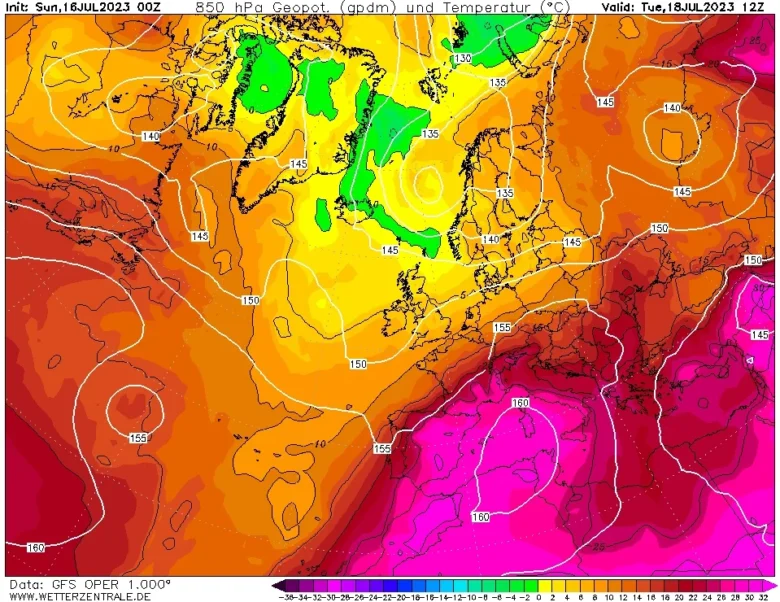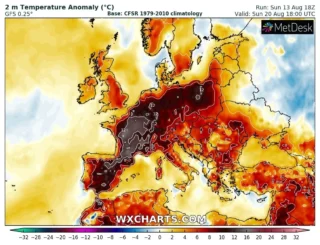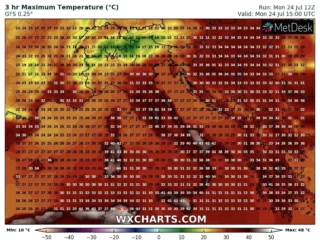An intense heatwave is gripping Europe with temperatures in parts of Mediterranean Europe forecast to reach as high as 48°C (118°F).
⚠️ The high-pressure system affecting the region, which crosses the Mediterranean from north Africa, has been named Cerberus after the three-headed dog in ancient Greek mythology who guarded the gates to the underworld.
Officials in several countries are preparing emergency measures, cellphone alerts and adjustments to staffing levels.
Italy, Spain, France, Germany and Poland are all facing a major heatwave, with temperatures expected to climb to 48°C by Tuesday on the islands of Sicily and Sardinia, potentially the hottest temperatures ever recorded in Europe.
In Italy the Ministry of Health has issued a red alert, valid throughout the weekend, for several central cities, from Rome to Bologna, Florence to Pescara, where temperatures are expected to reach a maximum of 37°C from today, before peaking at the beginning of next week.
In Rome, temperatures could rise to 40°C on Monday, then 42 or 43°C on Tuesday, shattering the previous record of 40.5°C set in the capital in August 2007.
🔥 Most of Europe is under some kind of fire warning as almost half of EU territory is in drought.
In the last 10 days of June, the latest period for which data is available, 42% of land across the 27 member countries was in warning state, the second of three drought categories, meaning a lack of rain had dried out soil.
A further 4% was in the most severe “alert” category after crops and plants were impacted by the lack of rain and parched soils.
The risk of wildfires ranges from moderate to high over most of the continent, and is “extreme” over the Iberian Peninsula.
The numbers evacuated from wildfires on La Palma in the last few days has increased from 500 to 2,000.
The blaze has now affected an area of about 4,500 hectares on the Spanish island, with officials warning the situation could be made worse by increasingly dry earth.
📸 Graphics provided by Wetterzentrale




